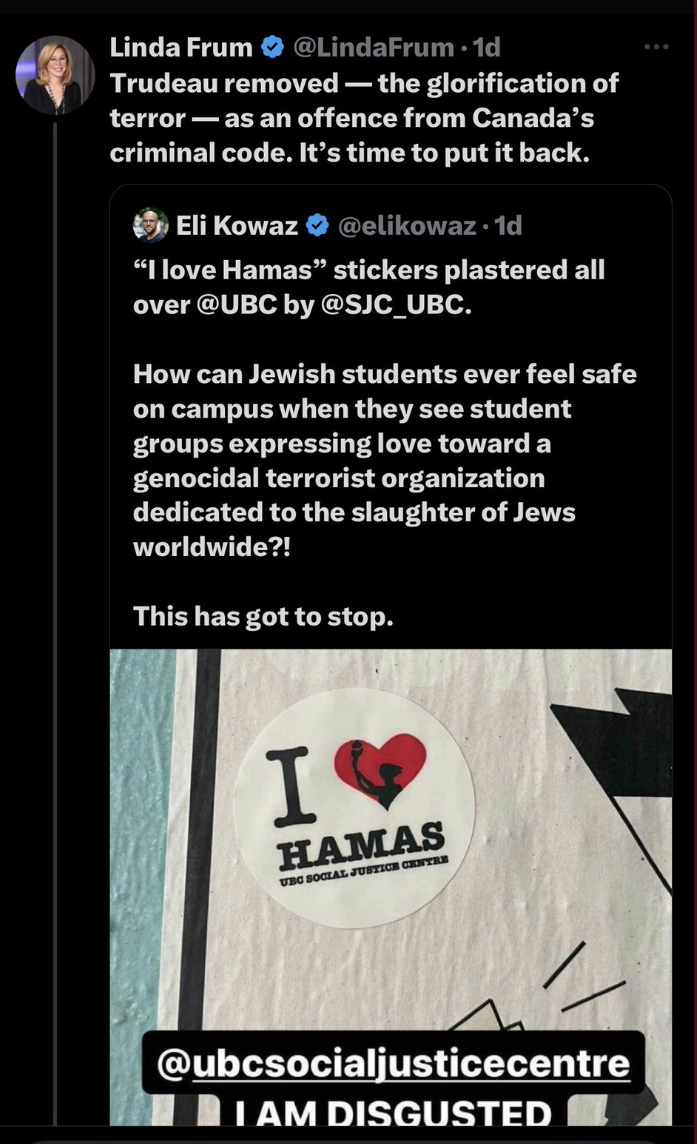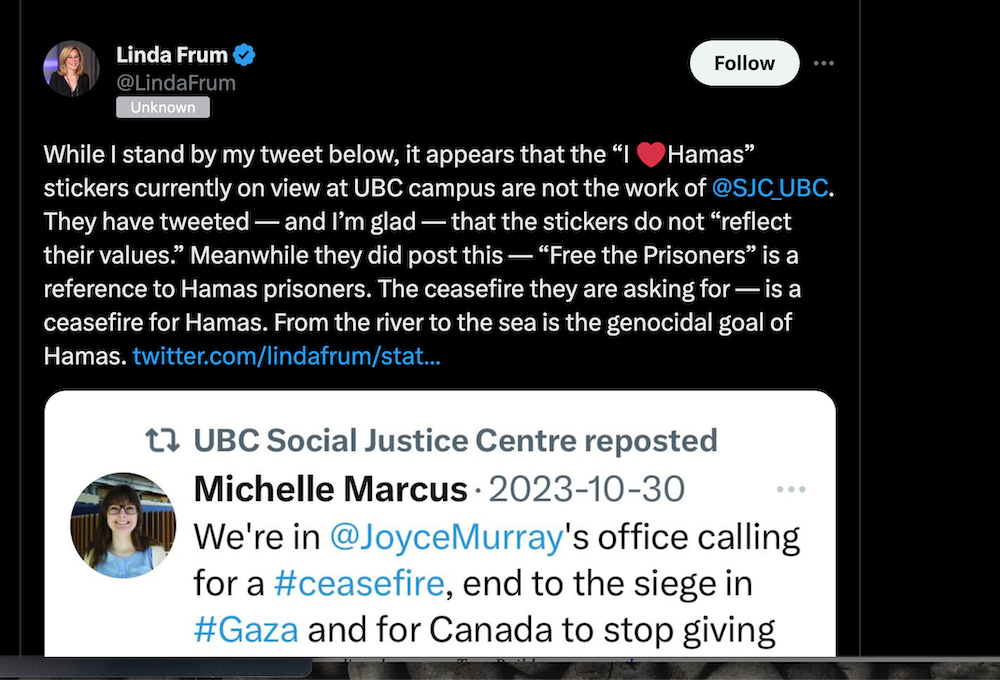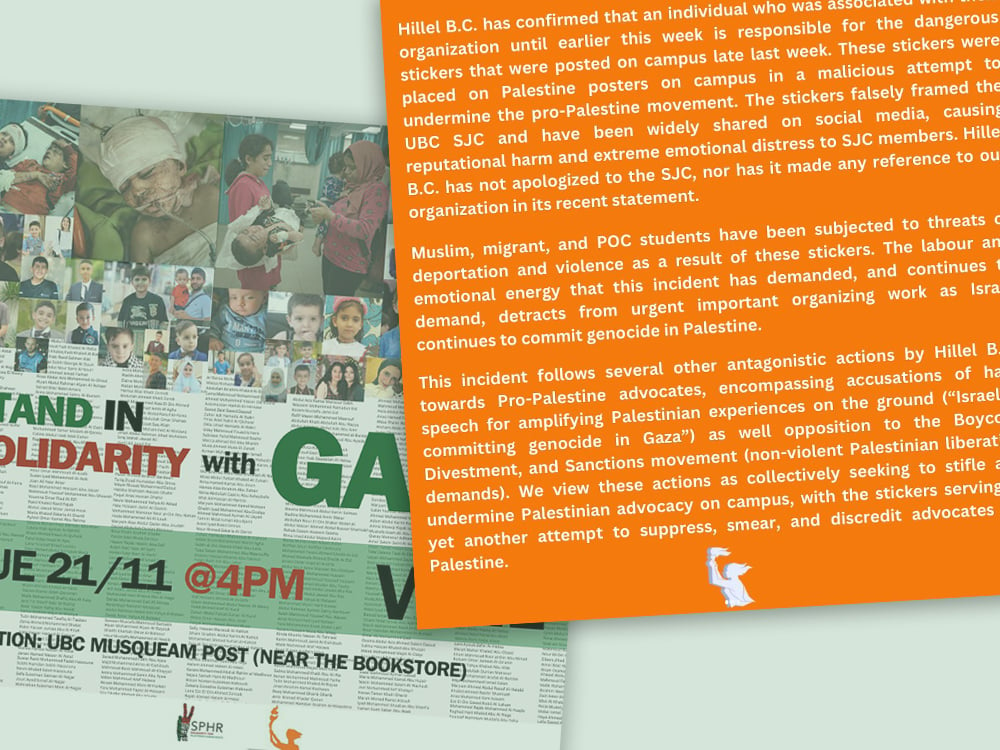Since Oct. 7, tens of thousands of people in Canada have taken to the streets to protest war crimes in the conflict that has killed over 1,200 Israelis and more than 15,000 Palestinians in Israel and Gaza.
Protests have been particularly heated on the country’s university campuses, where school administrators and even courts have come down hard on those opposed to the Israeli government’s ongoing military campaign against Gaza, often equating criticism of the Israeli state with antisemitism.
“I think it’s terribly unfortunate to argue, in some fundamental way, that there really is only one position that will be tolerated, and that other positions won’t,” said Henry Giroux, an English and cultural studies professor and director of the McMaster Centre for Scholarship in the Public Interest at McMaster University.
“It’s racism. Particularly with respect to the Arab world, it’s a form of Islamophobia, and they’ve got to address that,” Giroux added.
Canada’s Charter of Rights and Freedoms includes freedom of opinion and expression among the fundamental rights people living in this country possess.
Post-secondary institutions have an additional responsibility, mainly imposed through faculty contract negotiations, of protecting academic freedom, which takes as a principle that almost no idea is off limits to a classroom discussion or debate.
But people who work, study and live on post-secondary campuses also have a right to feel safe there. Since Hamas militants attacked on Oct. 7, media reports have noted an increase in antisemitism and Islamophobia in some Canadian cities.
Last month a class-action lawsuit was filed by two anonymous plaintiffs against the University of British Columbia and its three student unions, alleging the bodies have failed to prevent or address antisemitism on campus. Similar lawsuits were also filed using the same law firm against York University, Toronto Metropolitan University and Queen's University.
So how do universities and colleges balance the possibly contradictory rights to free speech and safety on campuses?
“The university has an obligation, not simply to talk about balance but to talk about justice and the truth,” Giroux said, adding schools should create opportunities for dialogue about complicated issues that allows for understanding of different points of view.
“The university is a democratic public sphere — or it should be — that should argue in ways that suggest moral and ethical responsibility and the search for the truth should never be divorced from how they define themselves,” he said.
The ‘I Heart Hamas’ controversy
“Free speech is hard,” said Cindy Holder, a professor of philosophy at the University of Victoria.
When universities include the promotion of the right to free speech as part of their mission, “it is inevitable that you’re going to get... really hard cases and instances where it’s not clear whether what you’re looking at is speech or action, and it’s not clear, even if it is speech, whether that speech should be allowed,” she said.
Earlier this month stickers impersonating the student union-affiliated UBC Social Justice Centre were plastered across the university’s Vancouver campus, claiming the organization “loved” Hamas, the militant political party in power in Gaza.
But an internal university investigation revealed the stickers to be the work of an unnamed contractor associated with Hillel BC, an independent Jewish student group on campus. Hillel BC has confirmed this, calling the stickers “offensive” and noting they cut ties with the contractor.
Hillel BC is one of 850 Jewish campus organizations under Hillel International, which views Israel as a “core element of Jewish life and a gateway to Jewish identification for students.”
The UBC Social Justice Centre, on the other hand, has been vocally supportive of Palestinian rights during the retaliatory siege by the Israeli Defence Forces.
The IDF and Hamas had agreed to a temporary truce, extended one day at a time, to allow for hostage and prisoner exchanges. That truce expired on Dec. 1.
Because the stickers impersonated a group, rather than communicating an honestly held opinion, they are an action, Holder said, not an example of free speech.
The ultimate aim of the stickers was to exclude the group from the campus community, she said, and cause it reputational harm.
The stickers created a safety concern, Holder added. They unfairly associated the UBC Social Justice Centre with an idea that would make the group a target and create an environment “in which violent action is being permitted.”
While the sticker mystery was solved before any physical violence occurred on campus, Holder points to the stabbing of two students and one professor in a philosophy of gender class at the University of Waterloo this past summer as another example of people being attacked for ideas the perpetrator assumed they were sharing in the classroom.
“It’s being talked about as though it were a speech problem. But really the speech problem as a safety problem is connected to the general level of violence that’s permissible,” Holder said.
Duped on social media
Before UBC’s administration went public with the results of its investigation, a photo of the stickers spread on social media.
On X, the platform formerly known as Twitter, former Canadian senator Linda Frum reposted a photo of the sticker and suggested the students of the UBC Social Justice Centre should be charged with “the glorification of terror” — an apparent misunderstanding of a former Conservative government law against the “promotion” of terrorism, which was rewritten by the Liberal government in 2019, in response to complaints from civil liberties groups, to zero in on counselling “another person to commit a terrorism” offence.

While Frum deleted her original message, she soon posted another accusing the UBC Social Justice Centre students of siding with Hamas by calling for a ceasefire, and of supporting genocide by using the phrase “From the river to the sea, Palestine will be free.”

Part of the balancing act between rights to free speech and safety on campus includes not assuming the meaning behind ambiguous phrases like “from the river to the sea,” says Samir Gandesha, an associate professor of humanities and director of the Institute for the Humanities at Simon Fraser University.
While some view the phrase as a call to physically push all Israelis into the Mediterranean Sea, others hear a call for equality for all people living on the land from the Jordan River to the Mediterranean Sea, he noted.
Like Giroux, Gandesha calls on schools to provide for open forum discussions over such slogans.
“Have a civilized, although not at all uncontentious, discussion as to what these kinds of slogans and phrases actually mean,” he said.
People on the left and right political wings are both guilty of “cancelling” those they disagree with, he says.
But Gandesha notes that long before this recent spate of violence, some North American universities took a conservative stance against any criticism of Israel by academics.
It’s one of many ways universities “overinflate” a sense of harm, Gandesha told The Tyee.
“I think when we are in contentious discussions, we have to assume that some things the other side says will offend us, but that doesn’t mean it harms us. It means we’re hearing something we might not want to hear,” he said.
“Universities have... really emphasized safety to the point where we can’t have very necessary political debates and dialogues. And if we can’t do that, where does that lead? It leads in the direction of other forms of conflict, which can be quite dangerous and destructive.”
Giroux, Holder and Gandesha all agree that students’ non-violent speech about the ongoing violence in the Middle East deserves as much respect as that of any other group.
“One of the things that I’m really tired of is adults that dismiss young people,” said Giroux.
“They’re really missing out on an opportunity to learn something from a generation that is in the midst of a time in history where they’re concerned about being written out of the future.” ![]()
Read more: Rights + Justice, Education

















Tyee Commenting Guidelines
Comments that violate guidelines risk being deleted, and violations may result in a temporary or permanent user ban. Maintain the spirit of good conversation to stay in the discussion and be patient with moderators. Comments are reviewed regularly but not in real time.
Do:
Do not: